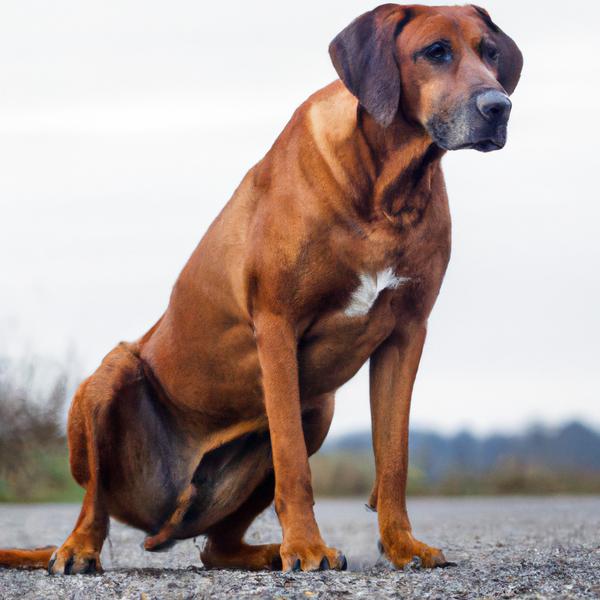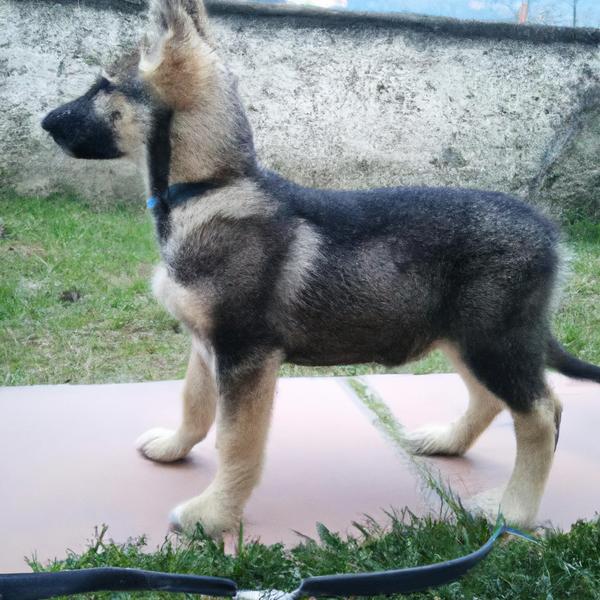Rhodesian Bernard vs. New Shep: Breed Differences and Similarities
Hypoallergenic
Are Rhodesian Bernards or New Sheps hypoallergenic, or neither?
Unfortunately, neither Rhodesian Bernard nor New Shep are hypoallergenic, which may not make them the best choice for dog lovers who suffer from pet allergies.
Temperament
What are the personalities of Rhodesian Bernard and New Shep dogs?
Dignified
Independent
Happy
Sensitive
Intelligent
Friendly
Loyal
Gentle
Going
Social
Strong
Willed
Quiet
Mischievous
Curious
Alert
Courageous
Intelligent
Confident
Obedient
Loyal
Gentle
Social
Sweet
Watchful
Cheerful
Shedding Level
Do Rhodesian Bernards shed more than New Sheps, or which breed sheds more, Rhodesian Bernards or New Sheps?
Rhodesian Bernards are moderate shedders, but regular brushing can reduce shedding and maintain coat health.
New Sheps shed a lot of hair each year, so frequent brushing is essential for reducing shedding and maintaining coat health.
Ancestry
What are the origins of Rhodesian Bernard and New Shep breeds?
Rhodesian Ridgeback, Saint Bernard
German Shepherd, Newfoundland
Breed recognition
Which kennel clubs recognize/register Rhodesian Bernard and New Shep?
DRA = Dog Registry of America, Inc.
DRA = Dog Registry of America, Inc.
Date of Birth
When were Rhodesian Bernard and New Shep breeds first developed?
Unknown
Eye Color Possibilites
What are the eye colors of Rhodesian Bernard and New Shep dogs?
Brown
Amber
Brown
Nose Color Possibilites
What are the natural nose colors of Rhodesian Bernard and New Shep?
Black
Brown
Black
Brown
Coat Color Possibilites
What are the natural colors of the coat for Rhodesian Bernard and New Shep breeds?
Red
Fawn
Black
Brindle
Sable
Blue
Silver
Red
Cream
Gray
Brown
White
Black
Coat Length
What is the typical coat length for Rhodesian Bernard and New Shep breeds?
Rhodesian Bernards have coats that can be either short or medium in length.
New Sheps have medium-length coats.
Coat Density
What is the density of the coat of Rhodesian Bernard and New Shep?
Coat Texture
What is the hair texture of Rhodesian Bernard and New Shep?
Straight
Wavy
Litter Size
What is the usual litter size for Rhodesian Bernard and New Shep?
A Rhodesian Bernard can have a litter of 6-8 puppies on average. However, it's worth noting that the size of the litters can vary greatly. Factors that can influence litter size include the health of the mother, breeding history, and genetics.
A New Shep can have a litter of 4-12 puppies on average. However, it's worth noting that the size of the litters can vary greatly. Factors that can influence litter size include the health of the mother, breeding history, and genetics.
Adaptability
Rhodesian Bernards are known for their adaptability and can adjust well to different environments and lifestyle changes.
New Sheps are highly adaptable and versatile, making them excellent companions for families and individuals of all lifestyles.
Health Issues
Between Rhodesian Bernard and New Shep, which breed is more prone to health problems?
Rhodesian Bernards typically have low vet costs due to their good health, but it's important to monitor their health and seek vet care when necessary.
The New Shep breed is generally very healthy, requiring minimal vet visits. Still, it's important to keep an eye on their health and seek veterinary care when needed.
Major Concerns
What are the major health concerns for Rhodesian Bernard and New Shep breeds?
Distichiasis
Gastric Torsion
Elbow Dysplasia
Hip Dysplasia
Dermoid Sinus
Heart Conditions
Wobbler's Syndrome
Elbow Dysplasia
Panosteitis
Canine Hip Dysplasia
Perianal Fistulas
Degenerative Myelopathy
Subaortic Stenosis
Gastric Dilation Volvulus (GDV) or Bloat
Minor Concerns
What minor health issues should be kept in mind when owning Rhodesian Bernard and New Shep?
Entropion
Deafness
Cataracts
Pyotraumatic Dermatitis
Diabetes
Hypothyroidism
Degenerative Myelopathy
Demodectic Mange
Cherry Eye
Progressive Retinal Atrophy
Cataracts
Pemphigus
Urolithiasis
Seborrhea
Pannus
Persistent Right Aortic Arch
Exocrine Pancreatic Insufficiency
Footpad Disorder
Platelet Dysfunction
Renal Cystadenocarcinoma and Nodular Dermatofibrosis
Mitral Valve Dysplasia
Pyoderma
Occasional Tests
What occasional tests are recommended for Rhodesian Bernard and New Shep breeds?
Eye
Hip
Elbow
Hearing
Heart
Thyroid Tests
Blood And Urine Analysis
Eye Examination
Blood And Urine Analysis
X-rays or other radiographic imaging
Electrocardiograph (ECG - measures rate and rhythm)
Myelography (Dye And X-Ray to Assess The Spinal Cord)
Social Needs
Rhodesian Bernard vs New Shep social needs comparison
Rhodesian Bernard has very high social needs and requires regular mental and physical stimulation, a job or purpose, and companionship.
New Shep has above average social needs and thrives with interaction with humans and other dogs.
Sleeping Need
Which of the two sleeps the most/least: Rhodesian Bernard or New Shep?
Rhodesian Bernards have moderate energy levels and typical sleep patterns of 12-14 hours per day.
New Sheps sleep less than other breeds but still need adequate sleep for good health.
Mouthiness
Mouthiness Comparison: Rhodesian Bernard vs New Shep?
Roaming urge
Rhodesian Bernard vs Labrador: Running away tendency?
Prey Drive
Rhodesian Bernard or New Shep - which breed has a higher level of prey drive?
Activity Level
Which breed has higher energy, Rhodesian Bernards or New Sheps?
Both Rhodesian Bernard and New Shep are medium-energy dogs that enjoy socializing and playing with other dogs. They may engage in casual or sustained games of chase, and occasionally have bursts of barking or racing around the house.
Tolerance of being left alone
Walks per Week
How many miles should Rhodesian Bernard or New Shep walk each week?
There's really no limit to how far you walk your dog as long as they're comfortable. For Rhodesian Bernard, it's at least 8 miles / week. Just remember to build distance and stamina gradually over time.
There's really no limit to how far you walk your dog as long as they're comfortable. For New Shep, it's at least 14 miles / week. Just remember to build distance and stamina gradually over time.
Activity per Day
Do Rhodesian Bernards or New Sheps require more exercise?
In general most Rhodesian Bernards usually need at least 45 minutes of exercise daily. This can be spread across the day and include all sorts of high-energy activities, like walking, running and playing.
In general most New Sheps usually need at least 60 minutes of exercise daily. This can be spread across the day and include all sorts of high-energy activities, like walking, running and playing.
Grooming
Which breed is easier to maintain in terms of grooming, Rhodesian Bernards or New Sheps?
The Rhodesian Bernard has low grooming needs and is easy to maintain.
New Sheps require significant grooming, including regular trims and professional grooming assistance to maintain their coat. They may also require frequent bathing to keep their coat and skin healthy.
Brushing Frequency
What is the recommended brushing frequency for Rhodesian Bernard and New Shep dogs?
Rhodesian Bernard should be brushed at least once a week. Of course you can give them more frequent brushes if you find that they are still shedding a lot
Ideally, New Shep should be brushed at least 2 or 3 times a week (preferably daily) improve shedding.
Brushing Tools
What brushing tools are used for Rhodesian Bernards and New Sheps?
Pin Brush
Deshedder
Nail Clipper
Pin Brush
Dematter
Comb
Deshedder
Cups
How much food should be given to Rhodesian Bernard or New Shep in cups?
For an average 110-130 pound (50 - 59 kg) Rhodesian Bernard feed 3.5 cups daily. But, keep in mind, the amount you feed is going to be dependent on the quality of the food you are feeding.
For an average 95-120 pound (43 - 54 kg) New Shep feed 3 cups daily. But, keep in mind, the amount you feed is going to be dependent on the quality of the food you are feeding.
Daily Cost
Which breed has a higher daily cost, Rhodesian Bernard or New Shep?
The average cost of a Rhodesian Bernard is somewhere $3.90 - $4.20 per day.
The average cost of a New Shep is somewhere $2.10 - $2.70 per day.
Monthly Cost
Which breed has a higher monthly cost, Rhodesian Bernard or New Shep?
The average per month expenses of a Rhodesian Bernard is between $112 - $126. This makes an average of $1344 - $1512 per year. It will be on the higher side when the dog is still small because it will need more frequent visits to the vet, shots.
The average per month expenses of a New Shep is between $55 - $73. This makes an average of $660 - $876 per year. It will be on the higher side when the dog is still small because it will need more frequent visits to the vet, shots.
Sensitivity Level
How do Rhodesian Bernard and New Shep compare in sensitivity?
These dog breeds are particularly attuned to its environment and the emotions of those around it. Rhodesian Bernard and New Shep can be easily overwhelmed by loud noises, new environments, unfamiliar people, or animals. This dog breed is best suited for individuals or families who are patient, gentle, and understanding of its sensitive nature. It may also benefit from a calm and stable home environment, with a consistent routine and plenty of positive reinforcement training.
Apartment Friendly
Which breed is more apartment-friendly: Rhodesian Bernard or New Shep?
Rhodesian Bernards and New Sheps are dogs that do well in apartments with sufficient exercise, but they would really appreciate a small yard.
Child Friendly
Do Rhodesian Bernards or New Sheps have a friendlier temperament towards children?
The typical characteristics of Rhodesian Bernard and New Shep indicate that this breed of dog is an ideal companion for kids and makes them family pets. Their gentle and protective nature and calm mentality make them gel along quickly with the younger humans.
Senior-friendly
Which dog is more suitable as a pet for the elderly - Rhodesian Bernard or New Shep?
Cat Friendly
Do Rhodesian Bernard or New Shep breeds have a better compatibility with cats?
Rhodesian Bernards and New Sheps are one of the best dogs for cats. They accept cats readily as part of the family. However, this dog breed should be trained to not chase after the kitty early on
Dog Friendly
Which breed is more sociable with other dogs: Rhodesian Bernard or New Shep?
Rhodesian Bernards are friendly and active companions, and can be good family pets, though their friendliness towards other dogs may vary.
New Sheps are average in their friendliness towards other dogs, and socialization can help.
Pet friendly
How do Rhodesian Bernard or New Shep dogs interact with other pets?
Stranger Friendly
Which breed is more friendly with strangers: Rhodesian Bernard or New Shep?
Rhodesian Bernards are averagely friendly around strangers but benefit from early socialisation.
New Sheps are friendly but may bark at strangers, and training is easy due to their intelligence.
Playfulness
Which breed is more playful between Rhodesian Bernard and New Shep?
Rhodesian Bernard and New Shep have an average level of playfulness. Like other dogs, they enjoy playing, but they are not the most playful dog breed.
Trainability
How do the trainability levels of Rhodesian Bernards and New Sheps compare?
Rhodesian Bernards are usually easy to train but require consistency to fully obey commands.
New Sheps are popular for their ease of training and quick learning ability.
Compare Rhodesian Bernard with other breeds
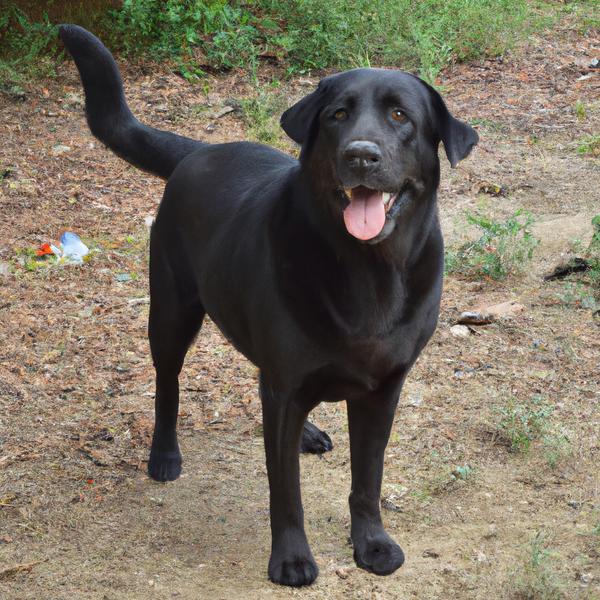
Labralas
Rhodesian Bernard vs Labralas
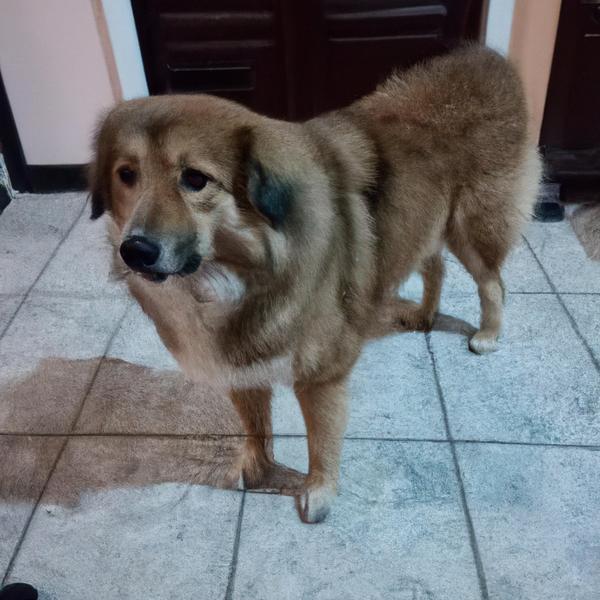
Daug
Rhodesian Bernard vs Daug
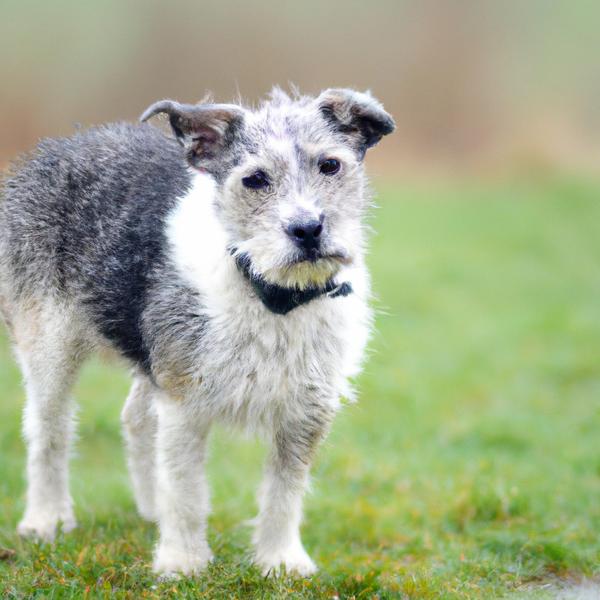
Scolden Terrier
Rhodesian Bernard vs Scolden Terrier
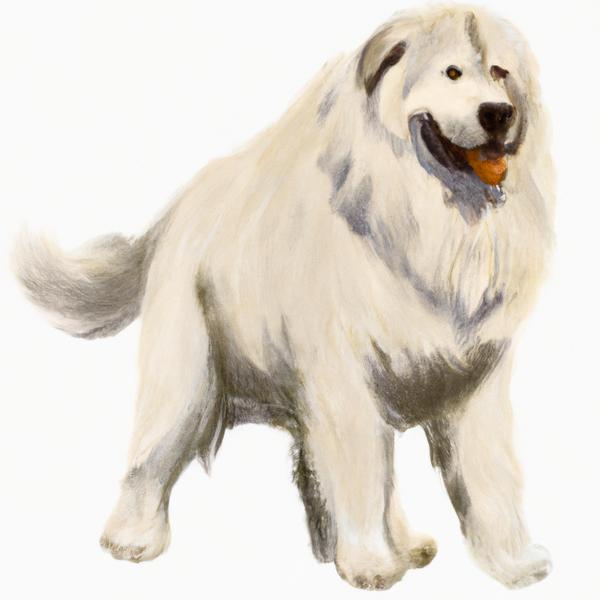
Powderpap
Rhodesian Bernard vs Powderpap
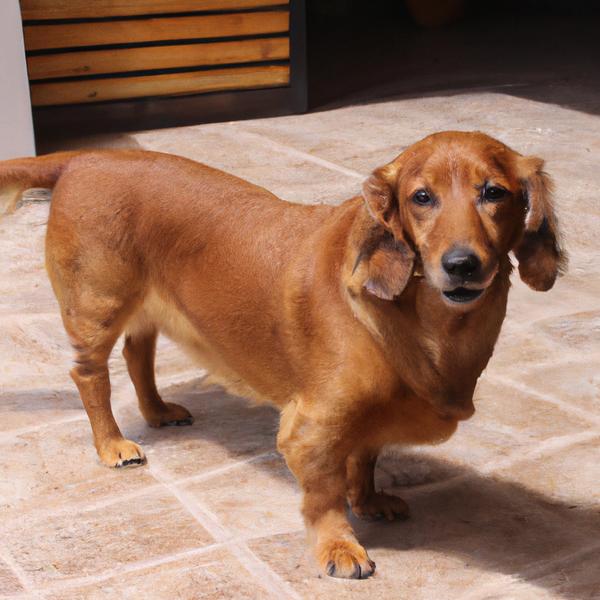
Golden Dox
Rhodesian Bernard vs Golden Dox
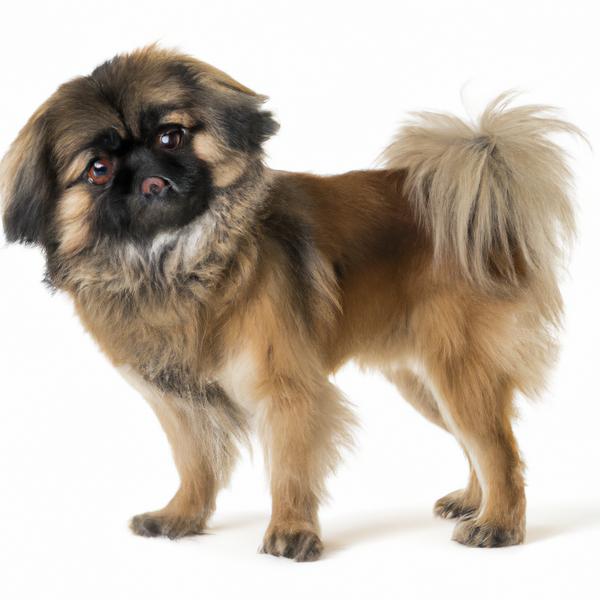
Peke-A-Boo
Rhodesian Bernard vs Peke-A-Boo
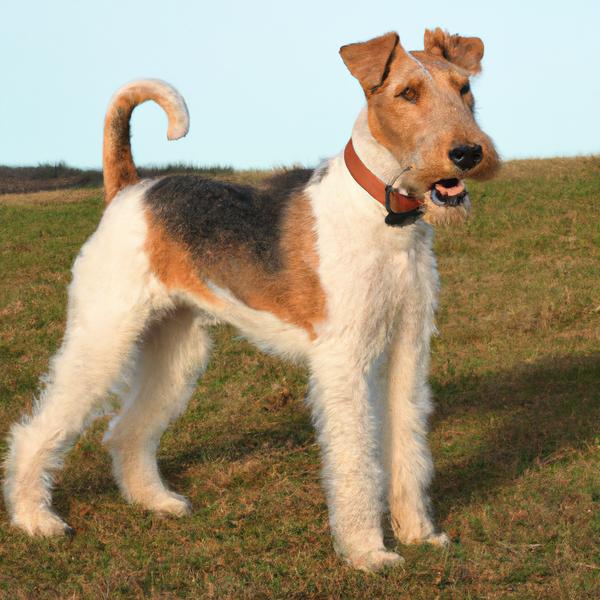
Welsh Mini Fox Terrier
Rhodesian Bernard vs Welsh Mini Fox Terrier
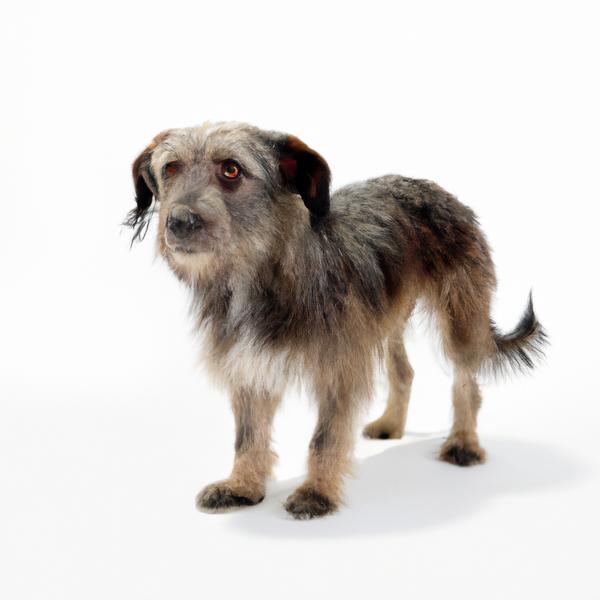
Raggle
Rhodesian Bernard vs Raggle
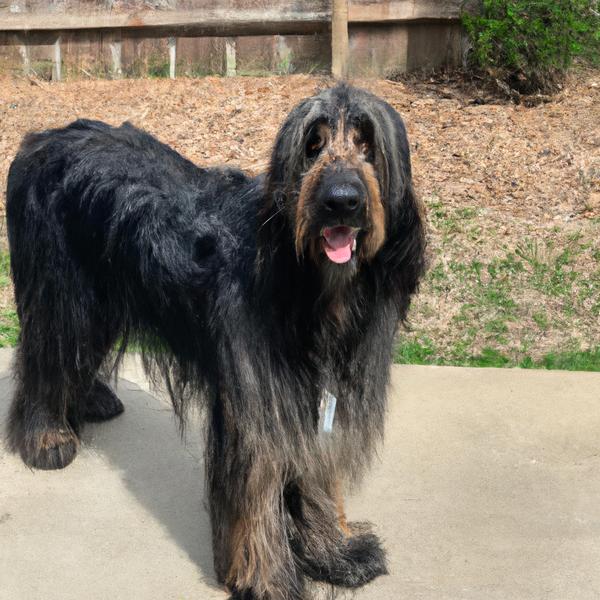
Black and Tan Coonoodle
Rhodesian Bernard vs Black and Tan Coonoodle
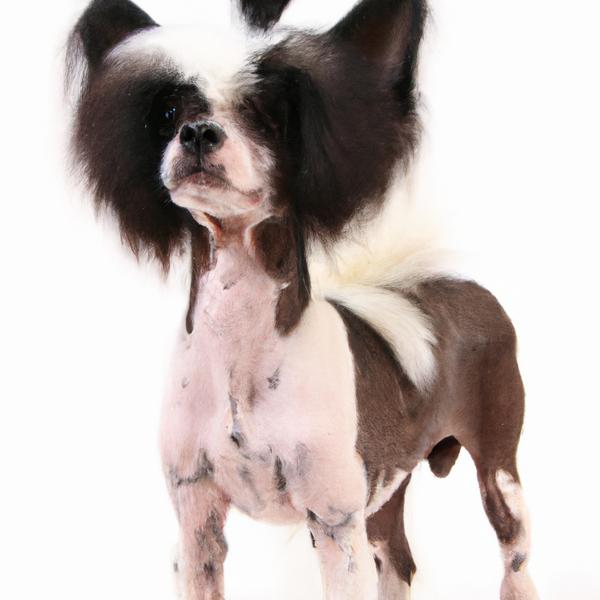
Peruvian Inca Orchid
Rhodesian Bernard vs Peruvian Inca Orchid
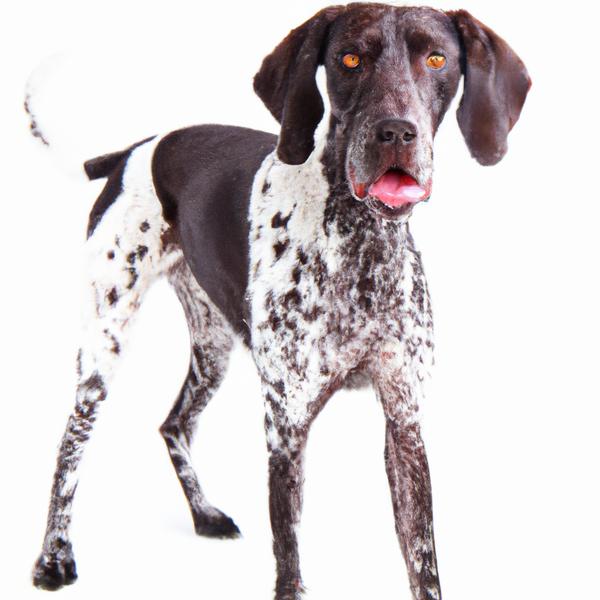
Lab-Pointer
Rhodesian Bernard vs Lab-Pointer
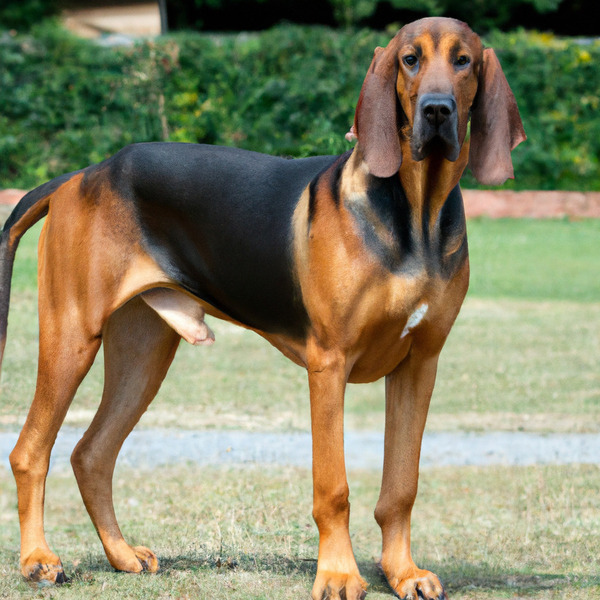
Hanover Hound
Rhodesian Bernard vs Hanover Hound
